Do Babies Have Nightmares?
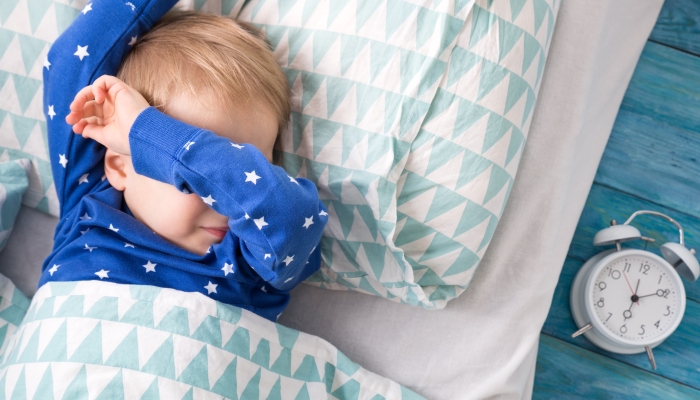
This post may contain affiliate links; please see our terms of use for details.
- Babies spend as much as half the time they’re asleep in the rapid eye movement (REM) stage of sleep. This is typically when adults dream or have nightmares.
- During REM sleep, your baby may twitch or smile, and you might notice those tiny tender eyelids flickering as if dreaming.
- While we know nightmares affect both adults and children, scientists aren’t sure how early they begin.
- It’s not just bad dreams that can mess with your baby’s sleep pattern. As many as 17% of children are thought to experience confusional arousals, or their more extreme forms, night terrors and sleepwalking.
When your little one cries out in the night, especially when they don’t seem quite awake, you might wonder, do babies have nightmares?
The truth is there’s still a lot we don’t know about sleep, especially when it comes to dreams and nightmares. Some scientists speculate that the first two weeks of life are when your baby will dream the most, while others are convinced dreams and nightmares come later.
Yet, whether your baby is experiencing a nightmare or sleep is disturbed for another reason, how you respond matters. Let’s learn more about what might cause your baby’s crying and what you can do about it.
Why Do Babies Cry in Their Sleep?
Crying is your baby’s first form of communication; it’s how they get your attention. A baby crying is hard to ignore, and that’s an important part of our evolutionary design.
Born with a tiny tummy, your baby needs frequent feeding and of course, once fed, there’s the inevitable cleanup.
Your baby may also cry out if they’re:
- Too hot or cold
- Teething
- Unwell
- In pain
Sometimes your baby may be disturbed by sensations in their environment, for example, harsh light or the touch of their bedding.
Once you’ve ruled out any physical issues, it may simply be that your baby is missing your presence. The newborn phase is often referred to as the fourth trimester as this is when your baby benefits from conditions as close to womb-like as you can make them. Fast forward a little, and you may notice separation anxiety in your toddler.
Not only does your baby need you for practical reasons and reassurance, but they also need help managing their emotions. Emotional regulation is a skill that comes later and continues to develop into adulthood.
Growth spurts and the increased brain activity that goes along with them can sometimes lead to what’s known as sleep regressions. These may be accompanied by more crying for a time.
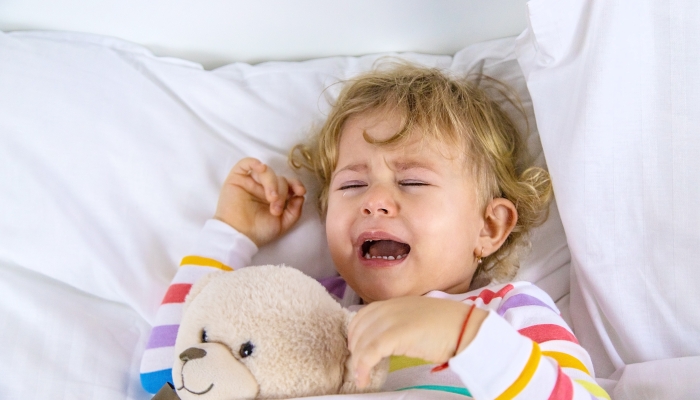
Do Babies Have Nightmares?
In adults and older children, nightmares tend to occur in the last half of the night during REM sleep. Your baby spends more of their sleep in this REM state, so it’s feasible they may also experience bad dreams.
Sleep disturbances are common in adults and children and aren’t confined to nightmares. Research from Norway found two-thirds of adults had nightmares, while as many as 18% also reported experiencing confusional arousals. Similar results were found in a US study and by the Children’s Hospital of Philadelphia.
Confusional arousals aren’t nightmares, but they can look similar with:
- Mumbling and speaking during sleep
- Eyes open and staring
- Confusion and disorientation
Your child may seem almost awake yet not respond to you, and they probably won’t remember it the following day. In contrast, your child may wake after a nightmare and is more likely to recall it later.
A more extreme form of confusional arousal is the night terror. Night terrors happen earlier in the sleep cycle, typically when your child moves from deep sleep to light sleep and can involve:
- Screaming
- Thrashing
- Sweating
- Rapid breathing and fast heartbeat
Again your child is unlikely to be aware of your presence even if they have their eyes open. Interestingly, many babies sleep with their eyes open and this isn’t necessarily a sign their sleep has been disturbed.
When Do Babies Start Having Nightmares?
Dreams and nightmares are thought to be one way the brain processes and sorts information. Your baby is building knowledge and skills at a phenomenal rate, so they have plenty to process.
It’s not unusual for children as young as two to describe bad dreams; this coincides with leaps in physical and intellectual development. Not only is your child’s imagination flourishing fast, but so is their awareness of danger. Toddlers may start to fear dogs, storms, and monsters under the bed.
As your baby becomes more mobile and independent, you’ll spend less time in close physical proximity. Even though this is natural and ideally led by your baby, it can still leave them unsettled, and these emotions often bubble up at night. Your baby may have more nightmares and need more support and attention to meet their attachment needs.
Night terrors occur primarily between three and eight years old, although they can start as early as 18 months. You may be more likely to notice sleep disturbances when your baby or child:
- Has a fever
- Is taking medication
- Is sleeping somewhere new
- Has experienced a significant upset
- Is picking up on stress around them
A 2015 study published in the medical journal JAMA Pediatrics, involving almost 2000 children, also found evidence that night terrors and sleepwalking run in families.
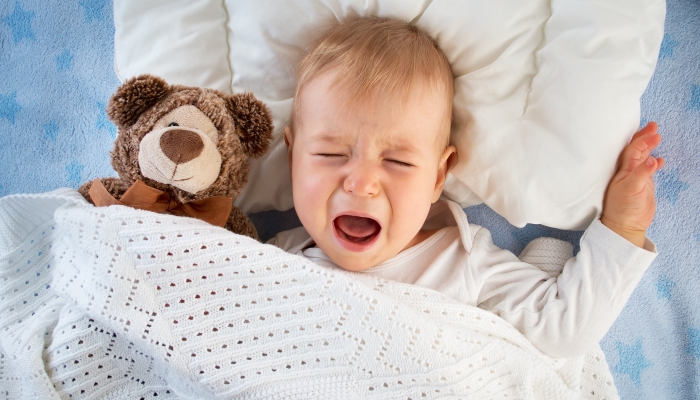
Can Baby Nightmares Be Prevented?
A nightmare is more likely if your baby is overtired, so it’s important to help them get the sleep they need. Give your baby lots of loving attention throughout the day, and aim for a regular sleep cycle with a relaxing bedtime routine. This may include:
- Breastfeeding
- Cuddles
- Stories
- Lullabies
An article in the journal, Evolution, Medicine, and Public Health, Issue 1, 2018, suggested co-sleeping could help prevent night terrors. The American Academy of Pediatrics (AAP) recommends room-sharing with your baby for the first year.
While the AAP doesn’t recommend bed-sharing, research suggests there are many benefits for babies and parents, and the danger comes when it’s unplanned or when specific risk factors like smoking or alcohol are present. If you choose to bed-share or think there’s a chance you might make sure your bed is a safe sleeping space.
While you can’t stop bad dreams, how you respond can go a long way to reducing your baby’s stress:
- Reassure them it was a dream.
- Remind them where they are.
- Use a gentle touch and comforting words to calm them.
- Listen attentively, avoid expressing shock or minimizing their experience.
Worry dolls or boxes can reassure small children. Keep bedtime positive, encouraging your child to share their favorite part of the day or what they’re grateful for. Relaxation exercises, meditation, and calming stories can help your child relax and fall asleep.
- Petty, Kate (Author)
- English (Publication Language)
- 144 Pages – 04/22/2014 (Publication Date) – Watkins Publishing (Publisher)
What to Do When Babies Cry in Their Sleep
Go to your baby as soon as possible. This builds your bond and their confidence and trust in you. In time their resilience and patience will grow.
Sometimes your baby will cry out in their sleep but not need you for anything. Be curious and observe these times to learn more about their cues.
Your baby needs your help to manage their emotions. Stress hormones are released when your baby wakes and cries alone, and too much stress can increase fear and frustration. Several studies, including research by Joan L. Luby, MD, et al, show early maternal support promotes healthy brain development.
Stay calm and be patient. Remember: it’s normal for babies to wake at night. Not only does this allow them to top up on nutrition and comfort, but it’s also thought to protect against sudden infant death syndrome. This doesn’t stop it from being super tiring, so take good care of yourself and get help where possible so you have the resources you need to support your little one.
If your baby has night terrors, don’t wake them. This may confuse them and extend the episode. Soothing words and gentle stroking of hair and hands may calm and shift your baby into a different phase of sleep. Keep the lighting soft, and make sure your child is safe.
Talk to your doctor if you’re concerned:
- About your baby’s breathing.
- Your baby may have had a seizure.
- Your baby is unwell or in pain.
FAQs
What do babies dream about?
You won’t know for sure until your child can tell you themselves. It’s likely their brains are reliving events of the day and making sense of new information. As their imagination develops, dreams may become more vivid, with personal experiences jumbled up with stories and videos.
Why do babies smile when they sleep?
Babies are known to smile before birth, as has been seen on scans. Early smiles when babies sleep are probably a reflex response, perhaps to wind. Older children may smile when dreaming, recalling pleasant memories, or in response to your voice or cozy sensations.
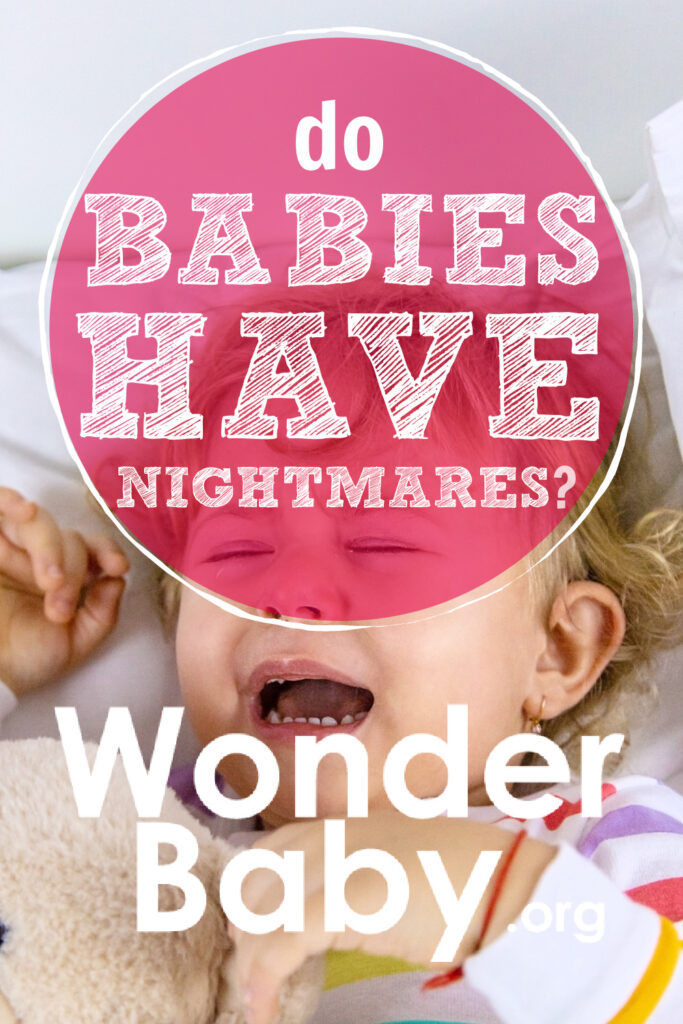
Related Posts
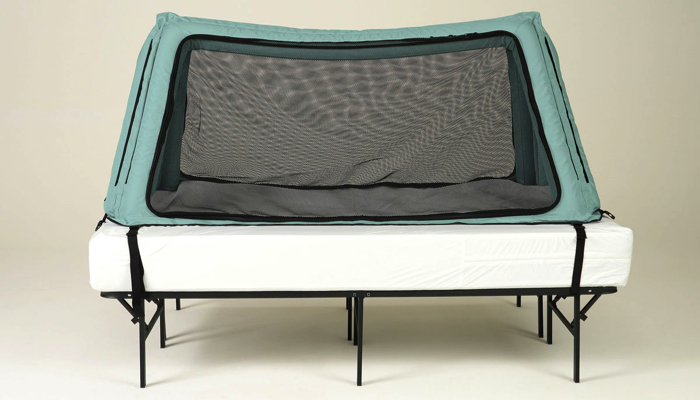
Sleep, Special Needs
Safe Place Bedding Travel Bed Review
Traveling with a special needs child can be stressful! Having a safe, durable, and easy to use travel bed can make traveling so much easier!
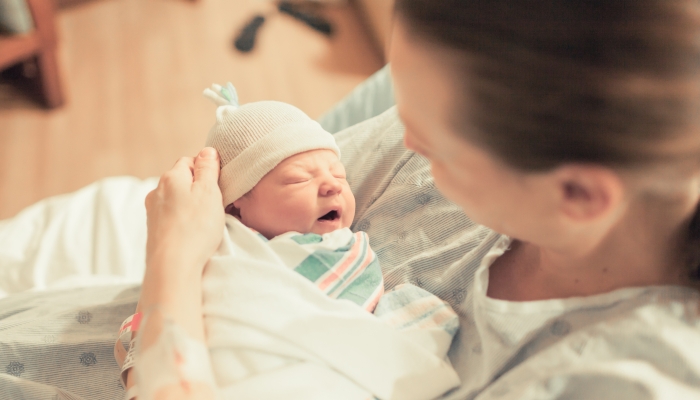
Sleep, Special Needs
Sleep Regimen for Premature Babies: Special Considerations
It can take premature babies much longer than their full-term peers to sleep for long stretches. A preemie sleep schedule may encourage better sleep.
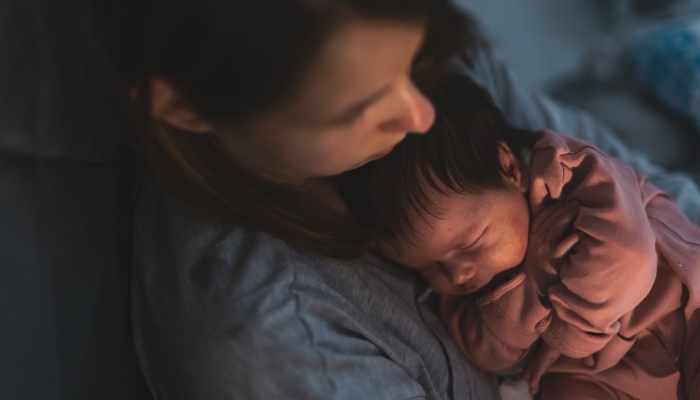
Sleep
Mastering the Bedtime Routine: 3 Tips for a Peaceful Night’s Sleep
From around six weeks, a newborn bedtime routine can help your baby learn the difference between day and night and prepare for a restful night’s sleep.
